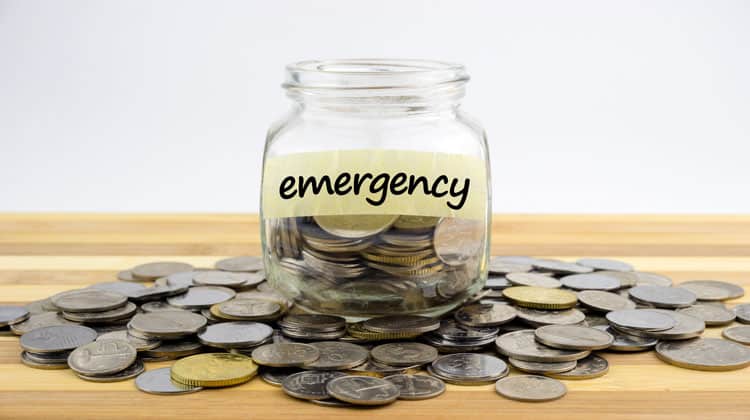An emergency comes looking for us when it is least expected. An emergency is something that we cannot always prepare ourselves for in advance. It just comes crashing down on us like a bolt from the blue and life will never be the same again. An emergency can walk into our lives from any direction around us or it may stand in waiting at the corner of the crossroads for its turn to come and pounce on us. We cannot predict the impact of such emergencies on our personal lives.
Emergencies can come in many forms. Your aging father who had never complained about a chest pain may get an acute heart attack so severe in magnitude that he needs to be immediately rushed to the hospital. Your wife may encounter complications during childbirth resulting in a prolonged hospital stay. On your way to your office, a loaded truck could smash into your brand-new SUV, wrecking the automobile beyond repair. The list continues, but any of these emergencies could change the course of your life forever.
One commonality between these tragedies is that they can all contribute to an unexpected financial crisis if you find yourself short on cash and in need of emergency funds. Although you cannot always prevent emergencies, you can protect yourself from falling prey to their impact on your personal finances. One such way is by creating an emergency fund reserved for these sudden expenses.
Raising a fund separately alongside the other fixed and recurring expense overheads is not easy. It takes rigorous planning and a strong determination to take the first meaningful step towards building a habit of saving money and does not happen overnight. It also involves prioritizing your expenses and putting them in the sequence of descending order of importance.
For example, paying the monthly electricity bill or rent should not be given the same degree of priority as buying tickets for an upcoming Hollywood blockbuster. Going to the supermarket to buy food and staples for your family should hold more importance compared to dining out with the friends at an exotic restaurant. If you keep focused on your overhead expenses and develop a strong prioritization framework, you may find it easier to identify areas to cut back. The funds you end up saving can become the foundation of your emergency fund, or could also help your startup business.
In the beginning, you may find this exercise frustrating as you are no longer able to spend for all your whims and wishes. But going forward, you may realize this self-restraint has helped you adopt a more sensible and responsible approach toward finance management. You’d be surprised at how fast you can grow your savings by not letting your hard-earned money be wasted on the heels of irrational expenditures.
Borrowing money could be detrimental to our self-respect
Gone are the days when we used to borrow money from friends and families. Not only is the average family size shrinking, it is also common to lose touch with friends as time passes. Unfortunately, during times of crisis many find themselves in periods of isolation, unable to take time out for our near and dear ones. It may be hard to remember when we had a family reunion or a get-together session with friends. This can pose a challenge when trying to decide whom to seek monetary help from, or how to grapple with the risk of being refused if you do ask.
Savings Account in a scheduled bank
A savings account is considered a baby step in building a sound financial portfolio. Compared to putting all your money in a piggy bank or hidden under your mattress, depositing money in the bank is usually a safer place for your money. Better yet – it can pay back small returns, calculated at a certain percentage on the money left in the account. With savings accounts, the account holder can usually withdraw money as needed, or even through ATM or debit card. This can make savings accounts a safe and convenient choice, so long as you do not overdraw your funds.
Fixed Deposit poses itself as a reliable investment option
You can pledge a certain sum of money for a specified period of time to a bank at a fixed rate of interest. The bank will issue a certificate of deposit against the money you have invested. You can then apply for a loan against the certificate of deposit, and sometimes withdraw the money before the completion of tenure depending on your terms. It is important to note that any premature withdrawal will cost you with a percentage of interest promised by the bank.
Apply for a loan online
The concept of online loans redefines the convenience of getting a loan. You don’t have to travel to a specific place or even leave the comfort of your home. You will need to meet some basic criteria to fill out a form online, including age, state of residency, and income. Based on the assessment of your loan application, your eligibility for the loan will be declared along with the amount of loan you are entitled for. One your application is approved; the loan amount will be transferred to your bank account in as little as one business day. This is probably the most convenient way to get a loan sanctioned, sitting in the comfort of your home. But it is important to remember to pay the loan back in time to avoid costly interest payments.
As there are a plethora of options available for you to choose from, it can be overwhelming and sometimes lead to a financially irresponsible investment decision. Therefore, it is always advisable to seek professional help to help provide guidance based on your personal needs and investment goals.



















